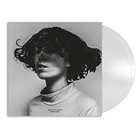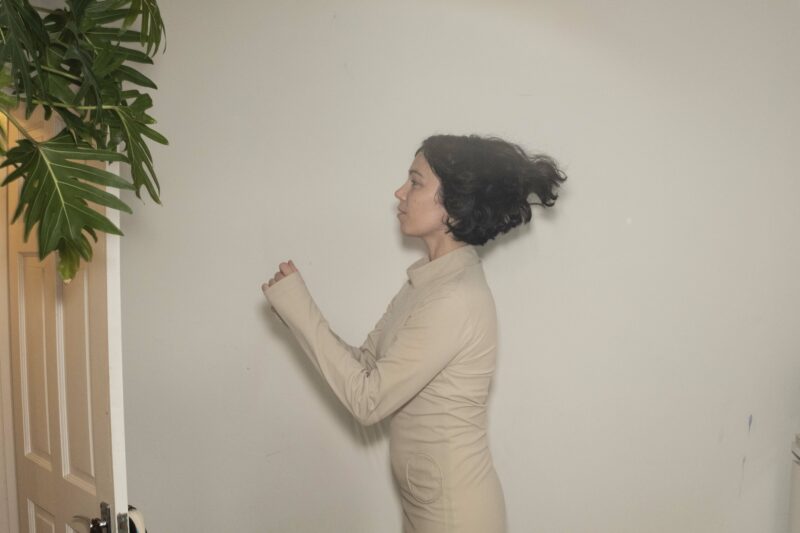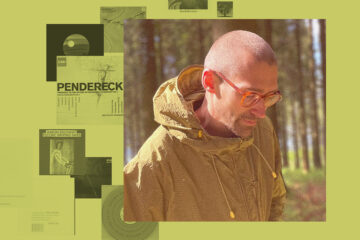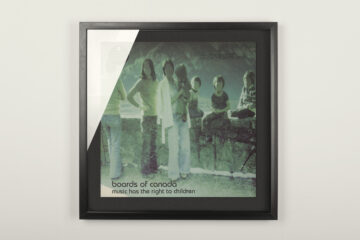Kelly Lee Owens has been tweaking the right knobs again after her stunning debut album in 2017. With »Inner Song« the London based musician and singer doesn’t stop at airy pop with techno moments, but dramatizes the dance floor with the strength of her own body—and for the first time grinds her techno voice with pop appeal. For Kelly Lee Owens who brought heaven to earth for Jon Hopkins in 2019 producing an electronic hit with “Luminous Space”, the direction is right. »Inner Song« takes off, dives in, blossoms. In any order. After the album hits record stores more than three months late (hey, macorona!), you don’t want to waste your time snipping unpretentious Spotify playlists. You get to the point. For joy, for life. For the record store.
You can find the Vinyl Records by Kelly Lee Owens in the HHV Records webshop.
You just released your sophomore album after being pushed back for over four months due to the pandemic. How has the original meaning about the record changed?
Kelly Lee Owens: It was supposed to come out May 1st, but it felt right to push it back for different reasons, really. Record shops had to close and couldn’t fully operate because of the pandemic. Things were just uncertain. Having worked in record stores for over ten years, I really wanted to be able to support them as well as have them be open and a place of discovery which is what they are. When the album comes out, people can walk in. Maybe they’re playing the album, some might ask what it is or they see the cover. There’s something about that which is timeless.
You worked in four different record stores. What impact did the experience behind the counter have on you?
You can’t help but be influenced by the things you hear. That’s why sound is so important and powerful. You can literally absorb the vibration of what you hear. It becomes part of you. In every record shop I have worked, I discovered something different. Just because people played different music and brought their own influence in which means that you got to learn new music all the time. At the same time I came across stuff from the past which is equally as good and has its own energies. Those times definitely infiltrated into my psyche.
Like materializing the influence.
It all adds to something while at the same time it’s all coming from somewhere. I grew up in Wales, a country that is known as the land of song. Everyone is in a quire. Songs become a way of expressing oneself that is very much encouraged. The same goes with poetry. We have a festival of Literature every year called Eisteddfod where it’s a celebration of Welsh culture, heritage and history. You know, Wales has been oppressed as a country by England—as of many other places. There were times where we couldn’t speak or sing in our own language. It’s only now that road signs are being converted into Welsh as well as English. Even the trains that I used to get home mispronounced the name of my place. It took years to get that changed and have the place name pronounced correctly. That is absolute insanity. So, I think it’s important to understand where you come from. I have taken all of the melodic and melancholic stuff that is encouraged in my community, then playing in indie bands which is about melody, really—and the urban surroundings can’t help but influenced me. That’s where the Techno comes in.
»Fabric was my first memories of being in a club, understanding how big a space can be with different floors, moments and music. It’s a visceral experience.«
Kelly Lee Owens
You discovered dance music in your late twenties, right? Do you have any memories you want to share about your first time going to a rave?
I don’t know if this is boring or this is cool, but the first one was actually Fabric. I was introduced to dance music by Daniel Avery We worked in a record shop and he invited me to record parts of his debut album »Drone Logic« together. Daniel also used to DJ at Fabric. He would get extra tickets. So, I jumped in at the deep end. Fabric was my first memories of being in a club, understanding how big a space can be with different floors, moments and music. It’s a visceral experience.
This experience is certainly hearable on »Jeanette«, »Melt« and »Flow«—straight club tracks without any vocals. When do you decide to sing on a track?
There are too many people who think that in order to produce a club track, they have to follow a certain formula. But they only do it for the money. I don’t prescribe to that. It’s not what I am trying to do. Once I made the music, it informs me of what I need to do. With »Jeanette«, it was so uplifting and free-flowing and it kept getting brighter and brighter. I feel like lyrics would have weighed down the energy. By leaving enough space, I’m honoring the sound. I’m not the kind of artist that needs to fill up the space for the sake of it. I’m not afraid of space. »Night« is one of the songs where it gets banging, but there is singing and speaking on it as well. I don’t abide to any rules. Whatever works and feels intuitively right is what I try to honor.
Listening to »Inner Song« it appears to me that your voice is much more prominent compared to your debut album. You recently said that this had something to do with Kieran Hebden aka Four Tet. What’s the story about?
I was playing a festival called Big Ears in Knoxville, Tennessee. Kieran was headlining as Four Tet. Since we share the same booking agent, Kieran requested that I play before him because he doesn’t really have support acts. If you go see him, not often will he have someone open for him. This was a good way of doing it—having a festival that was in a venue and me supporting him before his concert. He watched my show and after his concert he came to me and said like »God, those vocals! Why have you been hiding them?« It called me out a little bit. On my first record, I was not confident enough to place my voice as a genuine singing voice. It was fun to use my voice as another instrument in terms of putting lots of space echo and delay on it. With »Inner Song«, I needed to be more clear. I was more centered, but I also had more to say. I’ve been through so much since my debut album. I would not have wanted to use those lyrics if I had buried them underneath the music.
»I can’t write about something imaginary. It’s always connected to me.«
Kelly Lee Owens
The production allowed for the vocals to take pride of place.
The music already carries the emotion. I’m just writing on top of that. I have to find the pieces of the puzzle—but it’s always personal. I can’t write about something imaginary. It’s always connected to me. The more honest and raw and real I can be, the deeper it will connect with people. I always have notebooks with me in which I write down my thoughts and feelings. When it comes to the album, I get a new giant pad and pull together all the themes and ideas—and I find the words and energy that match the song.
In the press release to »Inner Song«, it was said that you had a hard time finding »your sound« for this album. How did you find it eventually?
Oh, I didn’t have a hard time finding my sound. It was more about my confidence in recording another album. I had doubts whether I could create again because I’ve been through something traumatic. I was exhausted and didn’t have the energy to be able to create things in way that I did before. When your energy is drained, your creative life force isn’t available to you so much. As soon as I decided to approach the album, it went quite fast. I wrote the music in 35 days.

You can find the Vinyl Records by Kelly Lee Owens in the HHV Records webshop.









